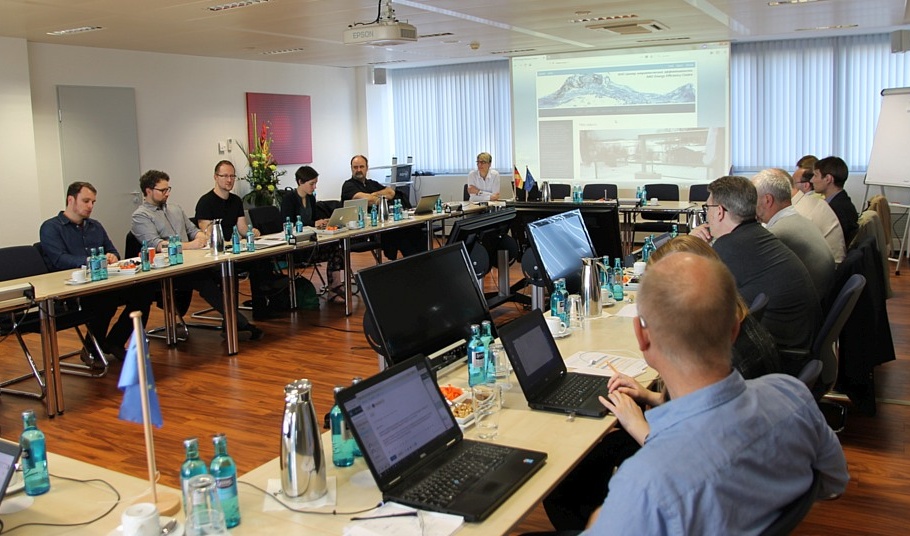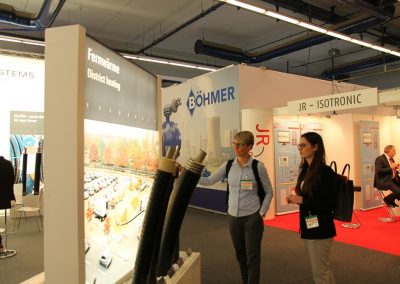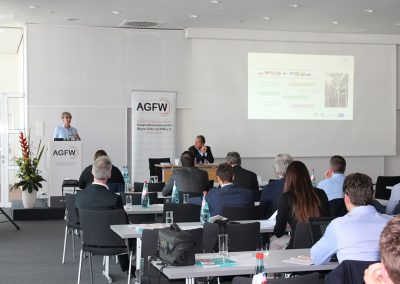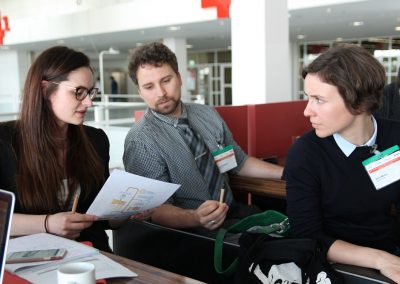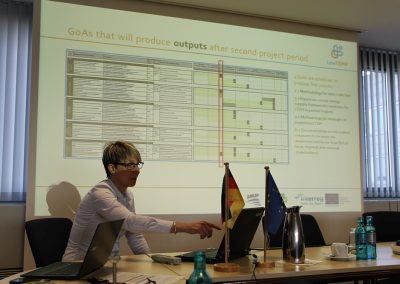Low temperature district heating (LTDH) systems are an important element to achieve sustainable energy supply structures and thus contribute to reduced energy waste and greenhouse gas (CO2) emission. The partnership of the Interreg project Low Temperature District Heating for the Baltic Sea Region (LowTEMP) recently met in the frame of the Heating, Cooling and Combined Heat and Power installations (CHP) Congress in Frankfurt a. M. to discuss the crucial role of district energy and the transition to sustainable energy supply in Europe. The partnership used the occasion to present first working documents delivered in the frame of LowTEMP.
As a part of the programme, the 2nd AGFW Cities Congress: Heating Supply of the Future – Challenges and Solutions offered the ideal setting for the LowTEMP partnership to exchange and learn about the heating revolution in Europe. The keynote speeches addressed questions concerning the energy generation mix of the future, climate-friendly municipal strategies, the integration of renewable energies as well as supply security and digitisation. The Lead Partner (Polish Academy of Sciences, Gdansk) with the support of the Agency for Technology and Networks KOM (aconium) presented the aims of LowTEMP. Smart district heating systems shall contribute to a more sustainable energy supply in the Baltic Sea Region by raising awareness and know-how among the responsible public and private stakeholders.
The partnership used the meeting in Frankfurt a. M. to exchange about the different technological, political and environmental conditions of heat supply in the partner countries. They discussed data collection procedures and methodologies to set up a District Heating (DH) Knowledge Platform. The platform should supply generalized knowledge about existing heating systems, heating demand, operators of the grid as well as available approaches and methods to implement LTDH. In addition, as part of the three-year project time, a life cycle assessment tool will be developed that helps municipalities to evaluate the sustainability of the investment in LTDH systems.
The European Union supports the project in the frame of the Interreg Baltic Sea Region Programme 2014-2020. 19 partners and 30 associated partners from nine Baltic Sea Region countries work together to provide the DH stakeholders with expertise and tools on how to plan, finance, install and manage smart and sustainable DH systems.
About LowTEMP
The project LowTEMP aims to make DH supply in the partner regions more sustainable and promote the installation of so-called 4th generation district heating networks. These systems are characterised by the transfer of lower temperature heat in optimally insulated pipes with reduced pipe dimensions. At the same time, these systems offer multiple heat supply options, i.e. it is possible to use waste heat from industrial processes but also renewable heat sources (geothermal and solar-thermal).
aconium is responsible for the project, communication and finance management of LowTEMP.
Photo top: LowTEMP partners meet in Frankfurt at Heating, Cooling and Combined Heat and Power installations (CHP) Congress, April 2018.
Photos bottom l-r: Britta Schmigotzki (Project Manager LowTEMP, aconium, l.) and Magdalena Jähler (Communication Manager LowTEMP, aconium) visit the trade fair for Heating, Cooling and Combined Heat and Power Installations 19 April 2018; Britta Schmigotzki during her presentation at the 2nd International City Congress: Future Heat Supply – Challenges and Solutions 19 April 2018; Magdalena Jähler discussing visuals together with LowTEMP partners 20 April 2018; Britta Schmigotzki at the LowTEMP partner meeting 20 April 2018. Frankfurt am Main.
Photo credits: aconium GmbH

